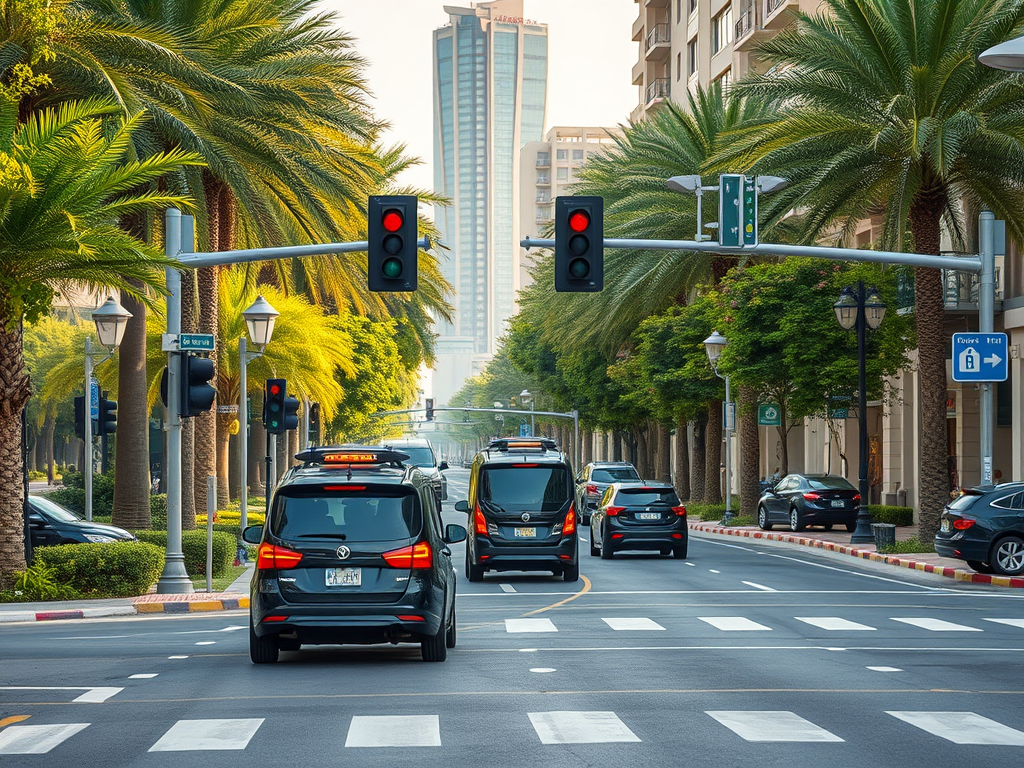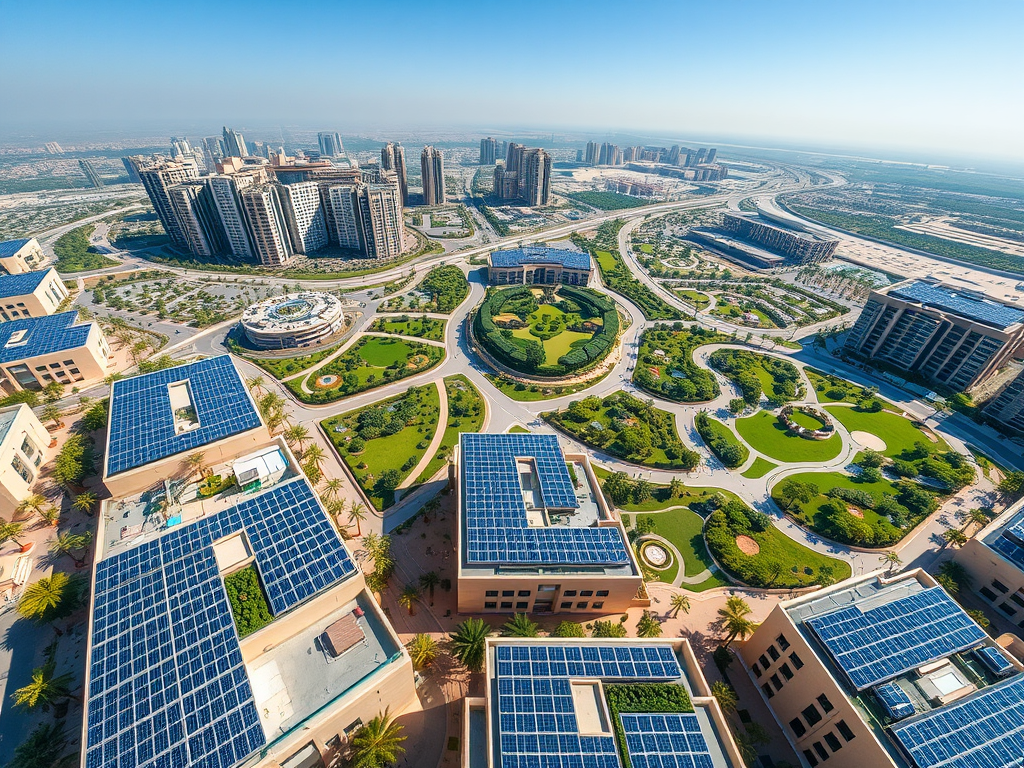The Potential of Dubai’s AI-Powered Urban Planning
Dubai is embarking on a revolutionary journey in urban development by harnessing the capabilities of artificial intelligence (AI). This transformative approach to urban planning is set to reshape the emirate’s infrastructure and services, making them smarter, more efficient, and user-friendly. The main topic of this article explores how Dubai’s integration of AI technology in urban planning not only enhances sustainable development but also promotes economic growth and improves the quality of life for its residents.
Understanding AI in Urban Planning

Artificial intelligence is the simulation of human intelligence processes by computer systems. In the realm of urban planning, AI plays a pivotal role in analyzing complex data sets to facilitate decision-making processes. By utilizing machine learning algorithms and big data analytics, planners can gain insights into traffic patterns, population growth, environmental impacts, and resource management. This leads to more informed and efficient planning outcomes. Some key applications include:
- Predictive analytics for traffic management.
- Smart resource allocation for public services.
- Real-time monitoring of urban infrastructure.
- Enhanced citizen engagement through data visualization.
Through these applications, urban planners can create dynamic models that allow for rapid adjustments to development plans in response to real-time data inputs. This flexibility is crucial in a rapidly growing city like Dubai, where population density and urban sprawl can pose significant challenges. AI not only offers insights but also creates a more responsive urban environment.
The Role of AI in Sustainable Development

Sustainability is a core principle of Dubai’s urban planning initiatives. AI technology enhances sustainable development efforts by enabling smarter resource usage and reducing waste. With AI, urban planners can simulate various scenarios to assess environmental impacts before implementing projects. This foresight is essential in preserving Dubai’s unique ecosystems. For example, AI can optimize energy consumption in buildings through predictive modeling, which reduces carbon footprints. The following strategies are among the most impactful in promoting sustainability:
- Smart energy management systems.
- AI-driven waste management solutions.
- Water resource conservation strategies.
- Green building design optimization.
Moreover, AI can facilitate the integration of renewable energy sources into the urban infrastructure, ensuring that future developments align with Dubai’s sustainability goals. As a result, AI-powered urban planning supports the emirate’s drive to become a model of sustainable urban living, contributing to a healthier environment for all its residents.
Enhancing Economic Development with AI
AI also plays a significant role in fostering economic development in Dubai. By streamlining urban planning processes, it attracts foreign investment and talent to the region. Investors are increasingly looking for cities that showcase innovation and technological advancement, and Dubai is positioning itself as a leader in this sector. The following points illustrate how AI enhances economic opportunities:
- Automation of permitting processes reduces time for project approvals.
- Smarter logistics planning creates efficient supply chain management.
- AI analytics support targeted marketing efforts for local businesses.
- Enhanced public transportation systems boost accessibility and mobility.
The incorporation of AI not only catalyzes economic growth but also ensures that the urban environment remains conducive to business development while catering to the needs of its inhabitants. As businesses thrive, the overall economy flourishes, creating job opportunities and improving living standards.
One of the most significant advantages of integrating AI into urban planning is the potential for improved citizen engagement. By leveraging AI tools, Dubai can foster a more interactive relationship between the government and its residents. The city can utilize data analytics to gather feedback and understand the needs of its citizens better. Key methods to enhance engagement include:
- Interactive mobile applications for real-time feedback.
- Data visualization platforms that illustrate urban development plans.
- Community forums powered by AI for addressing local issues.
- Personalized digital services based on citizen preferences.
Through such means, residents can feel more connected and invested in their urban environment, leading to a more harmonious community and greater satisfaction with local government initiatives. Ultimately, citizen involvement lays the groundwork for a more responsive and effective urban management strategy.
Conclusion
In conclusion, the potential of Dubai’s AI-powered urban planning is vast and multifaceted. By embracing artificial intelligence, Dubai not only accelerates its growth trajectory but also prioritizes sustainability, economic prosperity, and citizen engagement. This forward-thinking approach sets a benchmark for other global cities and emphasizes the importance of technology in creating resilient urban environments. As Dubai continues to innovate, it is well on its way to becoming a model for AI integration in urban planning across the world.
Frequently Asked Questions
1. What are the main benefits of AI in urban planning?
The main benefits include improved efficiency in decision-making, enhanced sustainability practices, better citizen engagement, and increased economic opportunities through streamlined processes.
2. How does AI promote sustainability in urban environments?
AI promotes sustainability by optimizing resource usage, predicting environmental impacts, and facilitating the integration of renewable energy sources.
3. Can AI help in managing traffic congestion?
Yes, AI can analyze traffic data in real time, allowing for predictive modeling that helps reduce congestion through optimized traffic flow and smart infrastructure.
4. What role do citizens play in AI-driven urban planning?
Citizens play a crucial role by providing feedback and input, which helps tailor urban projects to better meet community needs and preferences.
5. Is Dubai the only city utilizing AI for urban planning?
No, many cities worldwide are exploring AI for urban planning; however, Dubai is at the forefront, actively integrating advanced technology in its development strategies.


